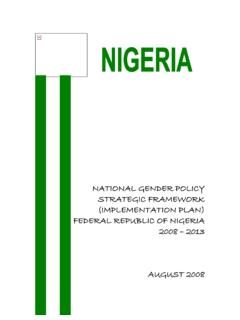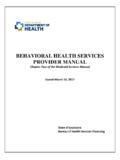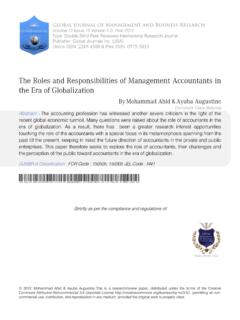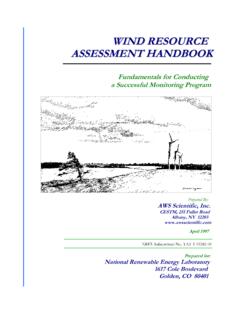Transcription of Does aspirin save lives in patients with COVID-19?
1 1 Voruganti D, et al. Heart Month 2021 Vol 0 No 0 Does aspirin save lives in patients with COVID- 19?Dinesh Voruganti,1 Pier Paolo Bassareo,2 Giuseppe Calcaterra,3 J L Mehta 1 An aspirin a day keeps the heart attack away , is this also true in the prevention of thrombotic events associated with COVID- 19? The rising COVID- 19 pandemic has led to much work in the understanding of the pathophysiology of the disease. COVID- 19 infection is thought to be an endothelial disease. Supporting this concept, it has been suggested that infection with SARS- CoV- 2, the aetiological agent for COVID- 19 infection, leads to a state mimicking Virchow s triad, that is, vascular endothelial injury, blood stasis and clotting in concert with systemic inflammation resulting in systemic keeping with this concept.
2 Moder-ately and critically ill patients with COVID- 19 have been found to have thrombotic and thromboembolic events during the acute and convales-cent state. Accordingly, there has been much interest in treating patients with COVID- 19 with anticoagulants. In an analysis of several large series of criti-cally ill patients in multiple studies (534 therapeutic anticoagulation, 564 usual care thromboprophylaxis), therapeutic anticoagulation did not improve survival or the number of days free of cardio-vascular or respiratory organ support.
3 On the other hand, among 2244 non- critically ill patients (1190 therapeutic anticoagulation, 1054 thromboembolic prophylaxis), therapeutic anticoagula-tion improved rates of hospital survival and reduced the use of cardiorespiratory organ there is intense platelet activa-tion secondary to endothelial injury and inflammation, there is also interest in the use of antiplatelet drugs in patients with COVID- 19. Currently, recommen-dations for antiplatelet agents to treat or prevent COVID- 19- related thrombotic events are lacking due to absence of data from prospective clinical trials.
4 With multiple mechanisms of tissue protec-tion besides inhibition of platelet aggre-gation, aspirin may have unexplored potential to treat/prevent COVID- 19 evaluate the benefit of antiplatelet therapy, Santoro et al2 selected 7824 patients from the HOPE- COVID- 19 registry; 730 ( ) received at least one antiplatelet agent (645 aspirin , 33 clopi-dogrel, 1 ticlopidine and 1 ticagrelor; 35 aspirin and clopidogrel, 10 aspirin and ticagrelor, 5 aspirin and prasugrel). Among 730 patients , 68% were males, 80% had a history of hypertension, 16% had cancer and 68% had an elevation of D- dimer, and in- hospital concomitant anticoagula-tion was administered in 66% of patients .
5 The multivariate analysis revealed a lower mortality risk (relative risk , 95% CI to , p< ) in patients receiving antiplatelet agents principally aspirin . No difference was identified for in- hospital mortality or the use of invasive ventilation or bleeding whether patients were given antiplatelet drugs or other investigators have eval-uated the role of antiplatelet agents in patients with COVID- 19 (table 1). Viecca et al3 and Liu et al4 demonstrated poten-tial benefits in terms of patient mortality and severity of ventilation abnormality.
6 The clinical outcomes measured in each of these studies varied considerably. Viecca et al measured A- a O2 gradient and Liu et al measured concentrations of D- dimer and blood cell counts, hospital discharge rate and mechanical ventilation use to conclude that patients who received aspirin had improved outcomes. Extreme caution should be maintained while extrapolating these results to improved mortality. Russo et al5 observed an insignificant decrease in mortality or risk of developing acute respiratory distress syndrome in patients given antiplatelet drugs.
7 Sivalo-ganathan et al6 identified no benefit in terms of mortality in patients with COVID- 19, and Pan et al7 observed no benefit in terms of disease severity of antiplatelet drug therapy based on the Modified Ordinal Scale (MOS). It is of note that the value of these studies is limited by small sample size, retrospec-tive cohorts and lack of homogeneity in the outcomes measured and antiplatelet agent/s used. Furthermore, a study (preprint) by the RECOVERY collabo-rative group (Horby et al) randomised 14 892 patients with COVID- 19 (7351 aspirin and 7541 usual care).
8 8 This is the only randomised controlled study on aspirin use in patients with COVID- 19, which observed that aspirin did not reduce 28- day mortality or the risk of progressing to invasive mechanical ventilation or death. There was a small increase in the rate of being discharged alive within 28 days, bleeding risk and slight reduction in the thrombotic events and duration of hospitalisation among the aspirin findings of Santoro et al reported in this issue of the journal is the largest retrospective study on aspirin use among patients with COVID- 19.
9 However, there are some limitations of the study. Whether or not to give antiplatelet agent and the choice of antiplatelet agent ( aspirin , clopidogrel, ticlopidine, prasugrel, ticagrelor, either with single or dual antiplatelet therapy) was at the discretion of the treating physician, and the mention of major bleeding episode relied on the diag-nosis codes. All this brings in the issue of bias. The patients who are admitted are usually elderly with significant comorbidities. Administering aspirin to these patients is subjected to bias, that is, confounding by indication , where the real benefits or risks of aspirin may not be truly representative of the whole study by Santoro et al is a step in the right direction to improve the outcomes of patients with COVID- 19.
10 The use of an antiplatelet agent, mainly aspirin , might improve clinical outcomes without increasing the risk of side effects such as bleeding. aspirin is a safe, cheap, universally available and well- tolerated medication. Using this drug in patients with COVID- 19 should be encouraged unless contraindicated. Further, while the most common anti-platelet drug used in these studies was aspirin , a significant number of patients received other antiplatelet agents alone or with aspirin . Thus, it is difficult to state with certainty whether the bene-ficial effects were related to the use of aspirin with its multiple mechanisms of action and/or the other antiplatelet 1 Division of Cardiology, Department of Internal Medicine, University of Arkansas for Medical Sciences, Little Rock, Arkansas, USA2 Department of Cardiology, Mater Misericordiae University Hospital, Dublin, Ireland3 Faculty of Medicine and Surgery, University of Palermo, Palermo, Sicilia, ItalyCorrespondence to Dr J L Mehta, University of Arkansas for Medical Sciences.










